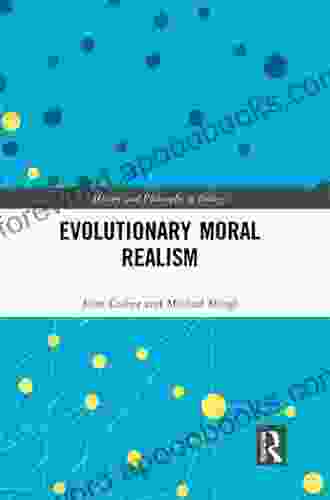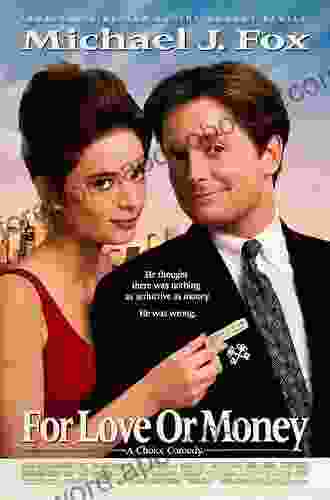Unveiling the Roots of Morality: Evolutionary Moral Realism in History and Philosophy of Biology

4.8 out of 5
| Language | : | English |
| File size | : | 2784 KB |
| Text-to-Speech | : | Enabled |
| Screen Reader | : | Supported |
| Enhanced typesetting | : | Enabled |
| Word Wise | : | Enabled |
| Print length | : | 190 pages |
Morality, a fundamental aspect of human existence, has long been a subject of philosophical and scientific inquiry. From ancient Greek philosophers to modern-day evolutionary biologists, thinkers have sought to understand the origins and nature of moral values.
Evolutionary Moral Realism emerges as a groundbreaking theory that connects the origins of morality to the evolutionary processes that have shaped our species. This concept, rooted in the history and philosophy of biology, provides a novel perspective on the scientific foundations of morality.
Historical Roots of Evolutionary Moral Realism
The seeds of Evolutionary Moral Realism can be traced back to the Enlightenment era, when philosophers such as David Hume and Jean-Jacques Rousseau argued that morality originates in human nature. Hume proposed that moral sentiments are rooted in our emotional responses to the actions of others, while Rousseau emphasized the role of empathy and compassion.
In the 19th century, evolutionary biologists like Charles Darwin and Herbert Spencer expanded on these ideas, suggesting that moral behaviors may have evolved through natural selection. They argued that traits that promoted cooperation and altruism within social groups would have provided a survival advantage, leading to the emergence of moral values.
Philosophical Foundations of Evolutionary Moral Realism
Contemporary Evolutionary Moral Realists build upon these historical roots to develop a rigorous philosophical framework. They contend that:
- Morality is an evolved trait: Moral behaviors and values have evolved through the same processes that have shaped other human traits.
- Moral values are objective: Moral truths exist independently of our subjective beliefs and desires and can be discovered through scientific inquiry.
- Moral values are grounded in evolutionary history: The specific moral values that we hold are influenced by the evolutionary experiences of our ancestors.
Science and Evolutionary Moral Realism
Evolutionary Moral Realists employ a range of scientific methods to investigate the evolutionary foundations of morality.
- Comparative psychology: Studies of animal behavior provide insights into the precursors of human morality.
- Ethnography: Cross-cultural research examines the diversity of moral values and their relation to local environments.
li>Neuroscience: Brain imaging techniques can identify the neural mechanisms associated with moral decision-making.
Implications and Applications
Evolutionary Moral Realism has profound implications for our understanding of human nature and the basis of ethics. It suggests that:
- Morality is not arbitrary: Moral values are not simply personal preferences or cultural conventions but have a deep evolutionary basis.
- We can improve our morality: By understanding the evolutionary origins of morality, we can identify ways to foster cooperation and promote a more just and ethical society.
- Science can contribute to ethics: Evolutionary biology offers valuable insights into the nature of moral problems and the development of ethical solutions.
Evolutionary Moral Realism is a transformative theory that reveals the deep evolutionary roots of morality. By integrating history, philosophy, and science, it provides a unique and compelling framework for understanding the origins and nature of our moral values. This theory has the potential to revolutionize our approach to ethics and foster a more enlightened and scientifically informed understanding of human nature.
4.8 out of 5
| Language | : | English |
| File size | : | 2784 KB |
| Text-to-Speech | : | Enabled |
| Screen Reader | : | Supported |
| Enhanced typesetting | : | Enabled |
| Word Wise | : | Enabled |
| Print length | : | 190 pages |
Do you want to contribute by writing guest posts on this blog?
Please contact us and send us a resume of previous articles that you have written.
 Book
Book Novel
Novel Page
Page Chapter
Chapter Text
Text Story
Story Genre
Genre Reader
Reader Library
Library Paperback
Paperback E-book
E-book Magazine
Magazine Newspaper
Newspaper Paragraph
Paragraph Sentence
Sentence Bookmark
Bookmark Shelf
Shelf Glossary
Glossary Bibliography
Bibliography Foreword
Foreword Preface
Preface Synopsis
Synopsis Annotation
Annotation Footnote
Footnote Manuscript
Manuscript Scroll
Scroll Codex
Codex Tome
Tome Bestseller
Bestseller Classics
Classics Library card
Library card Narrative
Narrative Biography
Biography Autobiography
Autobiography Memoir
Memoir Reference
Reference Encyclopedia
Encyclopedia Sandra Marie
Sandra Marie Radley Balko
Radley Balko Peter Westoby
Peter Westoby Nikesh Shukla
Nikesh Shukla Peggy Kahn
Peggy Kahn David Feherty
David Feherty Natalie Hopkinson
Natalie Hopkinson Ken Robison
Ken Robison K G Miles
K G Miles David Prior
David Prior Elio Marpa
Elio Marpa Sabrina Devonshire
Sabrina Devonshire David J Melling
David J Melling Peter C Rimensberger
Peter C Rimensberger Robert Berkelhammer
Robert Berkelhammer Gianno Caldwell
Gianno Caldwell David Nunan
David Nunan Rachel Brown Chidsey
Rachel Brown Chidsey Mike Mackessy
Mike Mackessy David Nurenberg
David Nurenberg
Light bulbAdvertise smarter! Our strategic ad space ensures maximum exposure. Reserve your spot today!
 Aubrey BlairFollow ·10.6k
Aubrey BlairFollow ·10.6k Eliot FosterFollow ·7.8k
Eliot FosterFollow ·7.8k Thomas PowellFollow ·16.3k
Thomas PowellFollow ·16.3k Maurice ParkerFollow ·16.7k
Maurice ParkerFollow ·16.7k James HayesFollow ·2.9k
James HayesFollow ·2.9k Camden MitchellFollow ·13.4k
Camden MitchellFollow ·13.4k Shaun NelsonFollow ·4.5k
Shaun NelsonFollow ·4.5k Chase MorrisFollow ·15.7k
Chase MorrisFollow ·15.7k

 Douglas Powell
Douglas PowellEscape into a World of Sweet Love and Second Chances with...
Prepare yourself...

 Garrett Powell
Garrett PowellMaster Badminton: A Comprehensive Guide to the Thrilling...
Are you ready to step into the world of...

 Deacon Bell
Deacon BellTrailer Park Trickster: The Adam Binder Novels
Book 1: The...

 Oscar Bell
Oscar BellLeo: The Very Modern Taoiseach
Leo Varadkar's journey...
4.8 out of 5
| Language | : | English |
| File size | : | 2784 KB |
| Text-to-Speech | : | Enabled |
| Screen Reader | : | Supported |
| Enhanced typesetting | : | Enabled |
| Word Wise | : | Enabled |
| Print length | : | 190 pages |
















